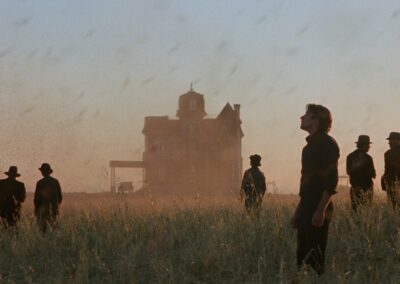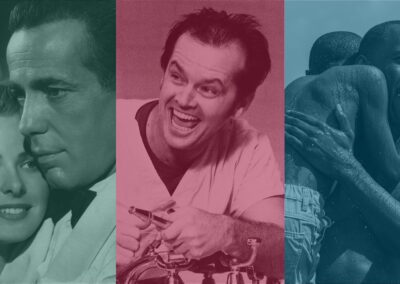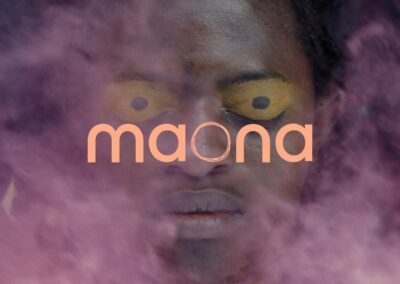Few other actors crashed and burned quite as spectacularly as 80s homme du jour Mickey Rourke who, lest we forget, was not only one of the most exciting actors to emerge in that decade but was also, for a while, the coolest (and probably sexiest) guy on the planet. Rourke, who was born in New York in 1952 and had studied at the acclaimed Actors Studio, had originally been an amateur boxer but whilst at the University of Miami had developed a yen for performing on stage as opposed to in the ring. He’d made his inauspicious film debut in Spielberg’s muddled (and very costly) World War Two comedy 1941 but the big breaks were yet to come.
It was a small role as a professional arsonist in Lawrence Kasdan’s erotic neo noir Body Heat (1981) which had brought him acclaim (the movie also launched the careers of the much-missed William Hurt and Kathleen Turner) and he followed this as part of the ensemble in Barry Levinson’s excellent coming of age comedy drama Diner (1982) which had been a cult hit.
However, it was his role as Motorcycle Boy in Francis Ford Coppola’s 1983 Rumble Fish (showing at the UPP in January) that truly cemented him as one of the most electrifying actors working at the time.
After the tribulations making his masterpiece Apocalypse Now, Coppola had started the 1980s with the ultra-expensive and (at the time) roundly derided Tom Waits scored musical One From the Heart (one of the most ambitious films of the 1980s and due for a digital re-mastering in time for Valentine’s Day, apparently) so was looking to go back to basics for his next project – a 50s based youth drama The Outsiders, based on a novel by teenager SE Hinton.
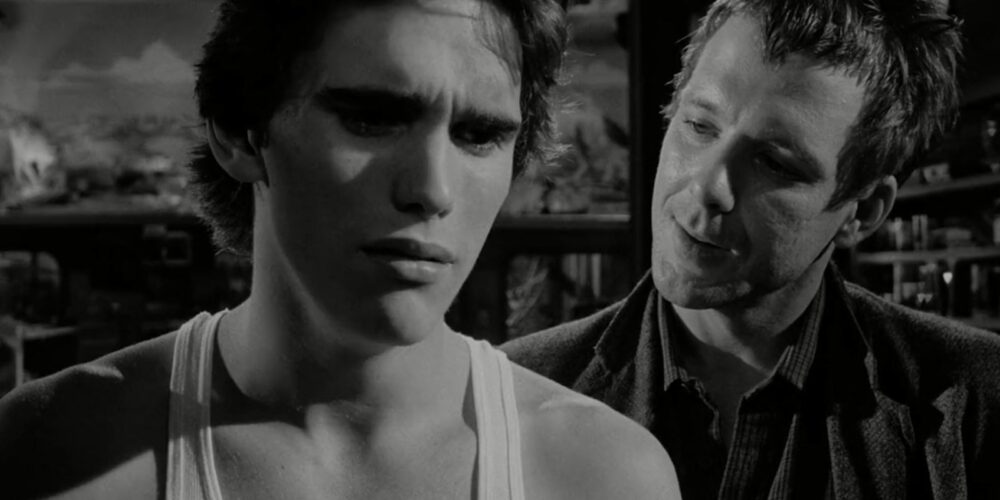
In order to keep costs down, Coppola decided to also film Hinton’s Rumble Fish back to back with The Outsiders (and also feature a number of that film’s same actors – plus Dennis Hopper and Nic Cage). It was artfully shot in black and white by Stephen H Burum (who, as well as acting as cinematographer on The Outsiders, had previously worked on Sidney J Furie’s Barbra Hershey starring horror movie The Entity in 1982 and would go on to collaborate with auteur Brian De Palma on the sleazy Body Double in 1984; gangster movie The Untouchables in 1987 and Vietnam drama Casualties of War in 1989). Rumble Fish was edited by Coppola regular Barry Malkin (who’d been part of the team on both Godfather movies and Apocalypse Now) and scored by The Police’s drummer Stewart Copeland (who also wrote the soundtrack for Oliver Stone’s Wall Street, amongst others). The film certainly had cult movie written all over it but, back in 1983, struggled to find a mainstream audience (it cost about ten million dollars to make and yet only clawed back two and a half). It has since been cited as both Coppola and his daughter Sophia’s favourite film from his career.
Presumably audiences at the time, however, as well as being put off by the black and white cinematography, were also perplexed by its expressionistic touches (to get his actors into the mood before shooting, Coppola screened, amongst others, silent “classics” Murnau’s The Last Laugh and Wiene’s The Cabinet of Dr Caligari); its avant-garde stylings and its retro, intellectual leanings (Rourke’s character dresses like French philosopher Albert Camus).
Obviously, all its doom-laden pretentions were exactly the reasons why most of my student friends and I were enamoured by with it when we first saw it at University when it was originally released. I’ll never forget, to this day, the way we all leaned towards the screen whenever Rourke (under) delivered his lines in a whisper before being blasted back into our seats whenever Matt Dillon (who plays Motorcycle Boy’s younger brother Rusty James) and practically every other actor in the film delivered theirs (rather shoutily).
“No leader can survive becoming a legend,” teased the tagline and who could resist that? Or the rather surreal moments when a youthful Diane Lane (who was 18 at the time) flies, semi-naked through the skies? Or those balletic “rumbles,” so artfully choreographed by (what a surprise) San Francisco Ballet choreographer Michael Smuin (think The Red Shoes but with added chains, knives and motorbikes).
I’d liked The Outsiders, which had come out a year earlier, a great deal, but this was leagues apart – a fantastic, arty and dreamlike poem to childhood, lost time, brotherly love and the ties which bind. A film you wanted everyone you knew to fall in love with, rounded off by a breakout performance from Mickey Rourke. At last we had our own Dean or Brando or Clift. What could go wrong? Well, quite a lot actually.
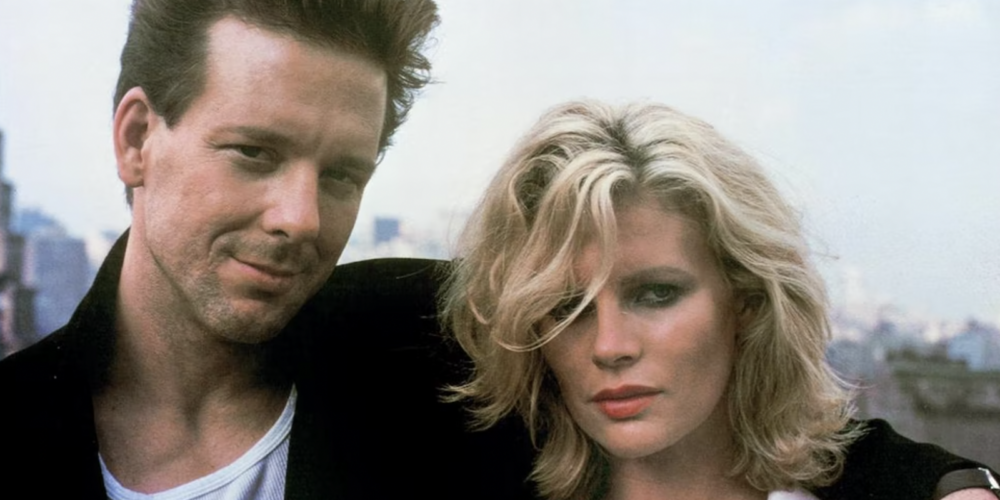
It didn’t happen overnight and, throughout the 1980s, Rourke continued to make some interesting films. Having had a small role in Michael Cimino’s box office disaster western Heaven’s Gate (1980) he was given a starring role in its follow up (yup, they allowed Cimino to make more films after that farrago) the under-rated thriller Year of the Dragon in 1985 – his racist policeman Stanley White may well be his finest performance. He had a minor role in Nic Roeg’s stunning head scratcher Eureka in 1985 (one of the best “lost” films of the decade) and, as private eye Harry Angel, he clashed with Robert De Niro’s Louis Cyphyre in Alan Parker’s Angel Heart in 1987 (the same year he’d appeared as Hank Chinaski in Barbet Schroeder’s adaptation of Charles Bukowski’s Barfly). He’d also earned sex symbol status (and probably a lot of money) in Adrian Lyne’s “erotic thriller” Nine and a Half Weeks (alongside the then hot Kim Basinger) in 1986, plus worked with 80’s supremo, director Walter (48 Hours) Hill on the slightly lacklustre neo-noir Johnny Handsome in 1989.
However, he was also getting a reputation for being difficult to work with and in 1991, apparently bored with the acting lark, decided to return to boxing, which is where he got the pounding he may have deserved; became more than punch-drunk; lost his stunning good looks and began to become a caricature of himself.
Of course, we now know that F Scott Fitzgerald was wrong and that there can be such things as second acts in the USA. After a slightly underwhelming return to the screen in the early 2000s (The Pledge, Man on Fire and Sin City) Rourke eventually appeared in Darren Aronofsky’s The Wrestler in 2008 (for which he was nominated for an Academy Award and won the BAFTA for best actor). Finally, Rourke fans who’d never really lost faith in him, could celebrate.
Mickey was back on top. All was right with the world. What could go wrong now? Just take a look at the list of “straight to video” films he’s made since and make up your own mind. “Ah well,” as Bogart may once have said, “We’ll always have Rumble Fish.”
Dr Andrew C Webber is a Film teacher and examiner with over 37 years’ experience. He currently contributes to both the Cinema of the 70s and 80s magazines (available on Amazon); cassette gazette fanzine (available from cassette pirate on e-bay) and the Low Noise music podcast available on Spotify and Apple podcasts.
